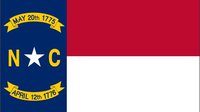In today’s busy world, where TikTok notifications and text pings constantly vie for our attention, it can be hard to encourage kids to sit down, open a book, and read out of sheer love for reading. Today’s educators are up against a lot, and as a former educator, I understand how frustrating it can be to try and overcome this hurdle. We know reading is important, but schools and educators could benefit from a more contemporary approach that taps into what motivates readers to read.
Over the past two years, our company has seen amazing growth in the K-12 sector, going from just a few school partners to more than 6,000. During that time, we’ve learned a lot. Our current methodology is data-driven, and what we’ve found is pretty clear: community reading challenges, competitions, rewards, and recognition are the biggest ways to impact a school’s reading culture. Here’s the playbook we rely on to cultivate a love for reading.
Setting Collective Reading Goals
We’ve discovered that setting collective reading goals can work wonders in cultivating a love for reading. Our data shows that students are much more likely to engage in reading when there is a goal to strive toward. We’ve seen that schools that set a district-wide or building-wide reading goal log double the reading minutes compared to those without such goals.
Take a look at Charleston County School District (CCSD) and Pasco County Schools, for example. Both set community-wide reading goals of 15 million minutes in their first school year and guess what? They achieved their goals way ahead of the target. Setting a collective reading goal motivates students to participate and contributes positively to the overall reading culture of schools. In CCSD, they saw a 90 percent school participation rate in the first semester alone. Meanwhile, halfway through their challenge in Pasco County, readers surpassed their initial goal, setting an even loftier one to finish off the school year strong. Community-wide reading goals promote reading and lead to sustained reading habits.
Encouraging Friendly Competition
Another effective strategy to get kids excited about reading is leveraging a bit of friendly competition. Just as in sports, competition can be a powerful motivator for students. By dividing the overall district challenge into smaller goals for individual school buildings, grade levels, or even classrooms, students get the chance to compete with their peers as they work to surpass each other's reading achievements. We’ve even seen elementary schoolers want to compete with middle schoolers! The excitement generated is real. Encouraging friendly competition not only makes reading fun but also keeps the pages turning as students race to read.
Providing Incentives, Rewards, and Recognition
Our partner surveys have consistently shown that incentives, rewards, and recognition are key in boosting student engagement and achievement. Imagine the excitement of a pizza party, a field trip, meeting a favorite author, or getting an exclusive library tour. These kinds of rewards can significantly ramp up participation in reading programs. And it’s important that we embrace the effectiveness of incentives for today’s student and trust the data that shows these extrinsic motivators do in fact lead to an intrinsic love of reading.
For example, in Pasco County, they reported that their secondary schools are very engaged with what they call the “Read a Latte” cart. Students’ wins are celebrated with snacks and beverages, pulling them out of class to enjoy a treat from the cart. As you might imagine, the buzz spreads quickly once the student returns to class, and peers are quick to want to know how to earn a treat.
Pasco County has also found success with other fun incentives, like allowing students to wear pajamas to school, reading with students from another grade, enjoying cookies and cocoa, or even earning new books. All these activities create an exciting, inclusive atmosphere that makes reading a celebrated part of the school day.
Recognizing the accomplishments of individuals and groups who excel in their reading endeavors can be equally or more effective than physical prizes and special experiences. We’ve seen public recognition and appreciation boost both morale and motivation. Whether highlighting top readers on social media or giving them a shout-out in weekly newsletters, acknowledging their hard work pays off and keeps the momentum going.
Because we believe strongly in this strategy, we’ve also introduced fun ways to honor schools with a high number of students tracking their independent reading that reach 75 percent or higher active participation are awarded “Reading Culture Trailblazer” status. They receive a special certificate and badge along with a $150 “Reading Culture Rebate” to support and celebrate reading at their schools and further develop their reading culture. Recognize your readers! It works.
Embrace the Joy of Reading
This playbook is a fantastic resource that any school can tap into, regardless of their reading program or motivational tools. Creating a culture where reading is celebrated, encouraged, and valued has a profound effect. By focusing on the joy of reading, students are not only inspired but also cultivate a real sense of belonging and connection. That’s the transformative power of reading!
Keep reading,
Felix Brandon Lloyd
About the author
Felix Brandon Lloyd and co-founder Jordan Bookey were featured on the ABC television show "Shark Tank" in 2014 where they gained an investment from businessman Mark Cuban. Prior to starting Beanstack, Felix taught and served as Dean of Students at the SEED Public Charter School. During this time, he was named Washington, D.C.'s Teacher of the Year.










